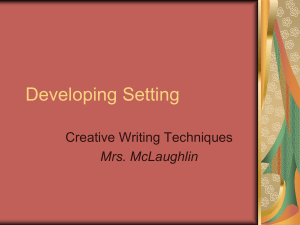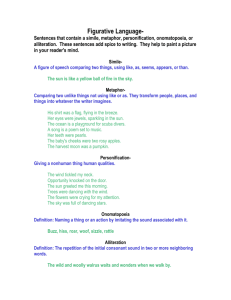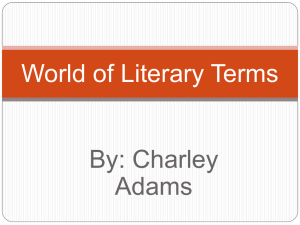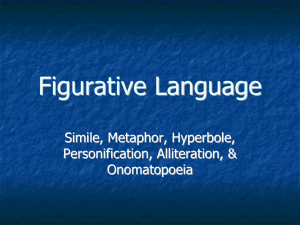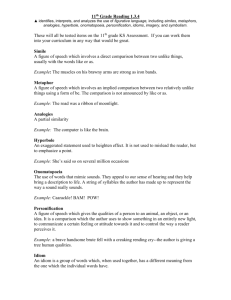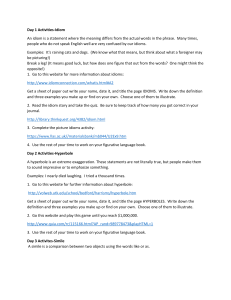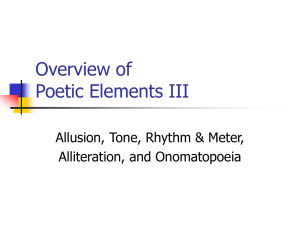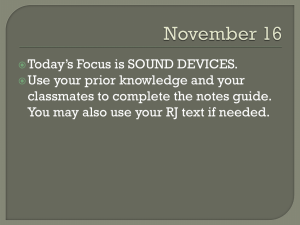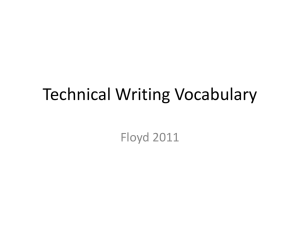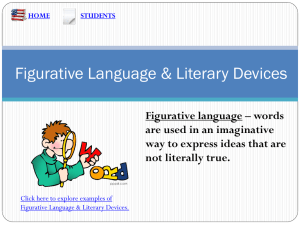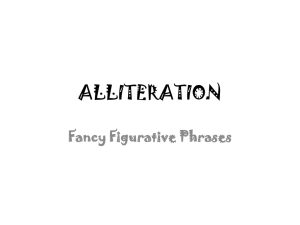Grade 5
advertisement
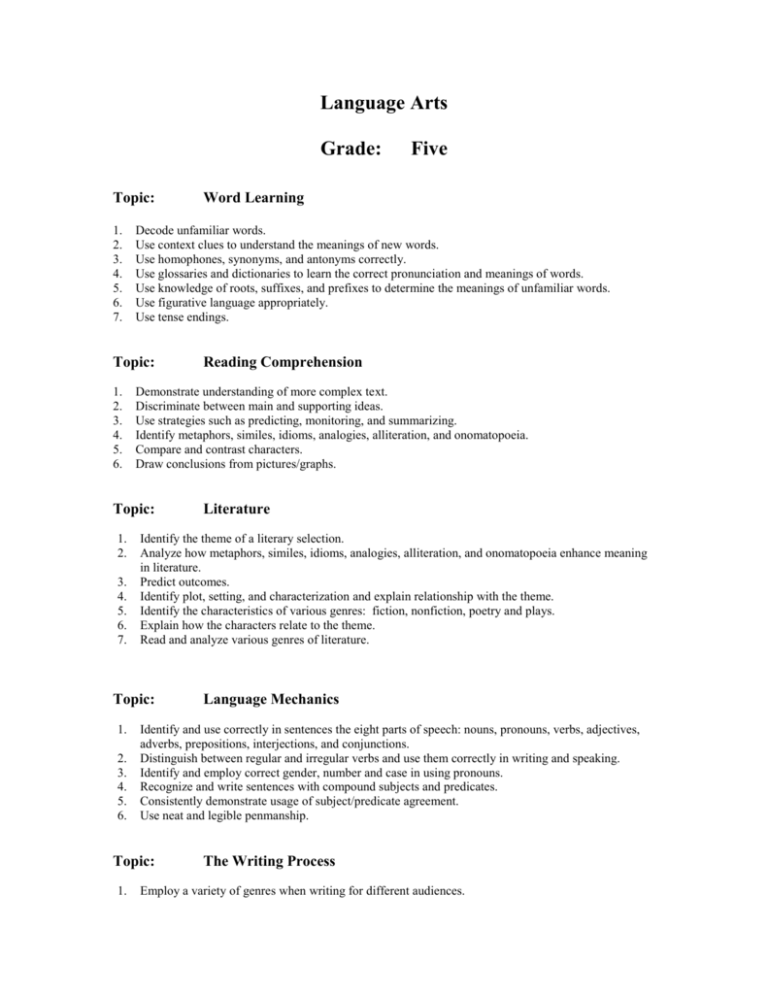
Language Arts Grade: Topic: 1. 2. 3. 4. 5. 6. 7. 3. 4. 5. 6. 7. 2. 3. 4. 5. 6. Language Mechanics Identify and use correctly in sentences the eight parts of speech: nouns, pronouns, verbs, adjectives, adverbs, prepositions, interjections, and conjunctions. Distinguish between regular and irregular verbs and use them correctly in writing and speaking. Identify and employ correct gender, number and case in using pronouns. Recognize and write sentences with compound subjects and predicates. Consistently demonstrate usage of subject/predicate agreement. Use neat and legible penmanship. Topic: 1. Literature Identify the theme of a literary selection. Analyze how metaphors, similes, idioms, analogies, alliteration, and onomatopoeia enhance meaning in literature. Predict outcomes. Identify plot, setting, and characterization and explain relationship with the theme. Identify the characteristics of various genres: fiction, nonfiction, poetry and plays. Explain how the characters relate to the theme. Read and analyze various genres of literature. Topic: 1. Reading Comprehension Demonstrate understanding of more complex text. Discriminate between main and supporting ideas. Use strategies such as predicting, monitoring, and summarizing. Identify metaphors, similes, idioms, analogies, alliteration, and onomatopoeia. Compare and contrast characters. Draw conclusions from pictures/graphs. Topic: 1. 2. Word Learning Decode unfamiliar words. Use context clues to understand the meanings of new words. Use homophones, synonyms, and antonyms correctly. Use glossaries and dictionaries to learn the correct pronunciation and meanings of words. Use knowledge of roots, suffixes, and prefixes to determine the meanings of unfamiliar words. Use figurative language appropriately. Use tense endings. Topic: 1. 2. 3. 4. 5. 6. Five The Writing Process Employ a variety of genres when writing for different audiences. 2. 3. 4. 5. 6. 7. 8. 9. Apply the steps of the writing process to create clear, coherent paragraphs. Compose book reports using summarizing. Write friendly and simple business letters, following the correct forms. Answer essay questions effectively in all subjects. Use the dictionary and thesaurus to improve word meaning. Write poems using poetic elements of alliteration and onomatopoeia and imagery. Formulate original paragraphs using correct topic sentence and detail sentences. Use a variety of sentence types in writing. Topic: 1. 2. 3. 4. 5. Read aloud using correct pitch, stress, and clarity. Adapt language to persuade, explain or seek information. Give informative oral presentations using appropriate delivery techniques (eye contact, posture, diction, etc.). Memorize and recite portions of a literary work. Participate in a class play or performance demonstrating expression, voice quality and confidence. Topic: 1. 2. 3. 4. 5. 6. 7. Oral Communication Study/Research Skills Follow an organized process for research (choose topic, identify research questions, collect and organize information, present findings). Identify and select appropriate reference tools, such as encyclopedia, atlas, almanac, periodicals, thesaurus, dictionary and Internet. Utilize Dewey Decimal System when using the library card catalogue. Cite reference sources using author, title, publisher and page number. Use skills in note taking, simple outlining, and paraphrasing while conducting research in topic areas. Conduct research using interviews. Use graphic aids to organize information.
